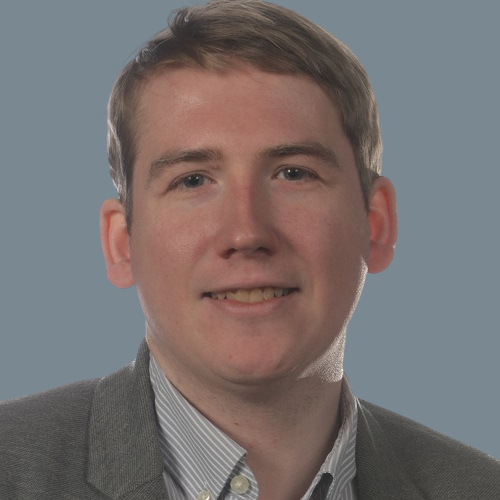Why did you choose to study at the University of Strathclyde?
Strathclyde is the only university in the United Kingdom offering a thorough course of study devoted to genealogy, palaeography and heraldry. During the pandemic, in 2020 and 2021, I found time to rekindle a longstanding interest in genealogy and then decided to pursue it professionally, having completed a PhD in History at the University of Cambridge. The Strathclyde course was central to my professional development and offered me the flexibility of a part-time online course, giving me the freedom to build up my genealogical business in London at the same time as gaining a qualification.
What did you enjoy most about your course?
I enjoyed the opportunity to pursue extended research projects on subjects of my own choice that would not generally be practicable while pursuing genealogy as a career. For the final project of my diploma, I studied 125 men who were freemasons in the town of King’s Lynn (on the east coast of England) between 1796 and 1807. One of them was an ancestor of mine. By building up a profile of the individuals who joined two masonic lodges and a chapter in King’s Lynn in this era, I was better able to place my own family history in context. I was also introduced to some fascinating sources.
What advice would you give to a prospective student coming to study your course?
I would advise prospective students not to underestimate the amount of time and effort that is needed for the course. While the online format offers a lot of flexibility, a great deal of planning is required to balance the course with other commitments. In order to get the most out of studying genealogy at Strathclyde, it is necessary to set aside a suitable number of hours for it each week. Also, do not be afraid to ask for extensions if there are unavoidable reasons why progress with any part of the course has been delayed. The university is very understanding in such circumstances.
What specialist knowledge / professional skills have you developed studying your course?
Before studying at Strathclyde, I was a full-time student studying history at the universities of Oxford and Cambridge during eight continuous academic years. I therefore already had a lot of contextual knowledge and experience which gave me a good grounding for the Strathclyde course. However, there was an enormous amount of material that was entirely new to me, as history is ultimately a different discipline. In particular, I learned a lot about Scottish genealogy and about Scotland’s legal system. I also studied very hard to understand genetic genealogy and to get to grips with heraldry!
How is your course helping to enhance your current career and prepare you for your future career?
The Strathclyde course has been really beneficial for my career as a professional genealogist. Before starting the course, I was essentially an outsider in the genealogical world, and did not know anyone else who was pursuing it professionally. By going to Glasgow twice for study visits connected to the course (and also twice to events in London), I started to meet other genealogists and become part of a network. This has not only diminished the solitary aspect of my freelance work, but also brought all kinds of opportunities for work and for self-promotion that would otherwise have been unthinkable.
What are your ambitions for the future and how do you think your time at Strathclyde will help you achieve your goals?
In the future, I would like to continue developing my genealogy business and to extend the links with other genealogists that I have developed while studying at Strathclyde. I also have an ambition to bring the disciplines of history and genealogy closer together. Having studied history to PhD level and then moved into the genealogical world, I think that I am in a good position to do this. I find it difficult to understand why genealogists and historians do not collaborate more, given that they are often looking at the same source material. I would like to be something of a bridge between the two.
Any final points, or words of wisdom?
The Strathclyde course is truly pioneering in the way that it makes genealogy a serious academic discipline, as opposed to a diverting hobby. I would encourage anyone who has the time and the inclination to consider studying at Strathclyde if they wish to deepen their knowledge of genealogy.
